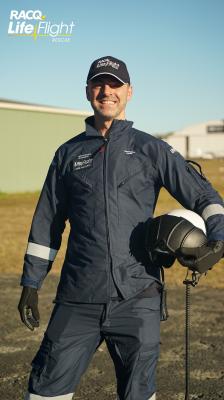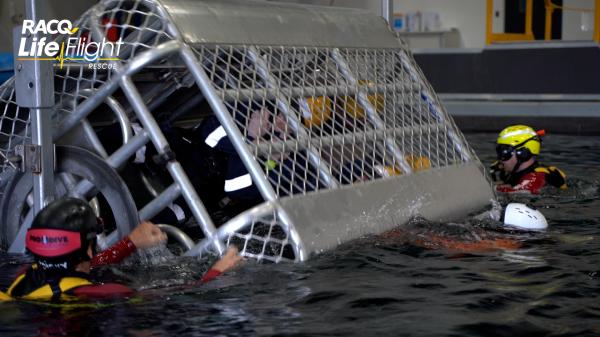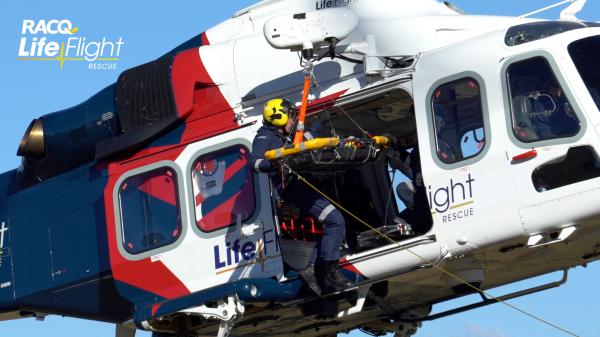Three new RACQ LifeFlight Rescue Critical Care Doctors are jumping on board the Sunshine Coast’s rescue chopper, ready to bring advanced medical care to sick or injured patients, often in some of the state’s most challenging locations.
With a love of the outdoors, the retrieval challenge has been on the horizon for new recruit Dr David MacGarty, for a long time.
“It’s a bit of adventure, it’s a bit of learning new skills and becoming more self-reliant as a clinician,” Dr MacGarty said.
“I’ve always liked the outdoors, so I guess this is kind of an excuse to get out to some of the locations where I like to be and also mixing that with my career, so for me it’s kind of a perfect scenario.”
Currently working as an anesthetist at the Sunshine Coast University Hospital, he often receives patients who have been airlifted by the LifeFlight chopper.
“Normally we get the handover from the doctor coming in from LifeFlight and we hear what’s happened to get that patient to the hospital, then after that we deal with bringing them to theatre and solving whatever the problem is.”
“This will give me a greater kind of context of what’s actually happening before that.”
Dr MacGarty joined 24 other doctors, who will work on aeromedical helicopters and jets across Queensland, at an intensive training week at the LifeFlight Training Academy, to prepare them for the many challenges of retrieval medicine.
“They’re here working for us because they are very experienced doctors, they’re top of their field sort of people, but they’re here doing something they haven’t done before,” Chief Aircrew Officer Simon Gray said.
One of the most important – and exciting – parts of training, is learning how to be winched from a chopper.
“We’re introducing them to one of the methods that we can get them to a patient because at the end of the day, that’s fundamentally our main purpose – to get advanced medical care to a patient,” Mr Gray said.
The retrieval registrars were also strapped into a metal helicopter simulator and dunked underwater, in Helicopter Underwater Escape Training (HUET).
“In the highly unlikely event of a helicopter going into the water, it’s going to roll over and flood with water, these doctors are going to have seconds to locate exits, operate exits and get themselves out, so the training’s developed to give them the skills to be able to do that and to stay orientated,” LifeFlight HUET Manager Mick Dowling said.
Back on land, the doctors were put through their paces in a series of simulated emergency scenes they could come across while on the job, at the Queensland Combined Emergency Services Academy at Whyte Island.
They were faced with some of the confronting realities of pre-hospital care, in scenarios including a wild house party where a child had ingested drugs, a worker injured in a confined space on a ship and a fatal car crash.
The majority of Critical Care Doctors’ work is performed on behalf of Queensland Health, under a ten-year service agreement.










